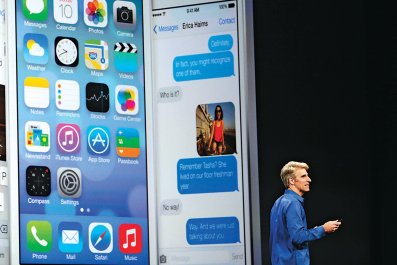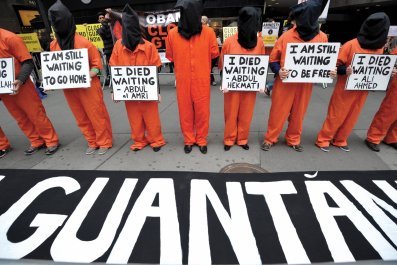IN 2011, Republican Rep. Jim Sensenbrenner of Wisconsin stated that "as author of the Patriot Act," he "applaud[ed] the House and Senate" for extending provisions of the controversial legislation, including Section 215 allowing investigators broad powers to monitor and seize "any tangible things" related to a terrorism investigation. Last week, in a letter to Attorney General Eric Holder, Sensenbrenner—now apparently surprised at how his legislation was used by the National Security Agency (NSA)—wrote that "as the author of the Patriot Act, I am extremely disturbed by what appears to be an overbroad interpretation of the Act."
Sensenbrenner was responding to documents leaked to The Guardian by Edward Snowden, a 29-year-old former contract worker at the NSA, that revealed a massive government data-mining program. The vague language of the Patriot Act, say the bill's legion of critics, made the massive expansion of the surveillance state both possible and inevitable. Yet, as The Atlantic's Conor Friedersdorf noted, the congressman had previously shrugged off concerns that the law could be abused, arguing in 2006 that "congressional negotiators added more than 30 civil-liberty safeguards not included in current law to ensure that the Patriot Act's authorities would not be abused in the future."
Sensenbrenner isn't alone in changing his tune. According to a new poll released by the Pew Research Center, Americans are remarkably fickle in their attitudes about domestic surveillance. During the Bush administration, only 37 percent of Democrats found NSA spying programs "acceptable," while 75 percent of Republicans backed eavesdropping on "people suspected of involvement with terrorism ... without first getting court approval to do so." The same question, asked days after Snowden's revelations, saw 64 percent of Democrats now backing NSA snooping, with Republican support dropping to 53 percent.
The victory of partisan opportunism over moral principle is hardly surprising; the American people, after all, take their cues from party leaders and professional ideologues. After Snowden revealed his identity to The Guardian, conservative firebrand Glenn Beck tweeted, "Courage finally. Real. Steady. Thoughtful. Transparent. Willing to accept the consequences. Inspire with malice toward none." Rush Limbaugh called him "profoundly articulate and extremely thoughtful." This, despite the fact that Snowden told The Guardian he was moved to leak the top secret documents after President Obama "continued with the policies of his predecessor."
Indeed, on the campaign trail in 2008, then–Senator Obama rapped the Bush administration for offering "a false choice between the liberties we cherish and the security we demand." Last week, Obama used the "false choice" argument he once bemoaned, telling Americans that they "can't have 100 percent security and also then have 100 percent privacy and zero inconvenience." In the NSA debate, it appears, intellectual consistency is hard to find.




























